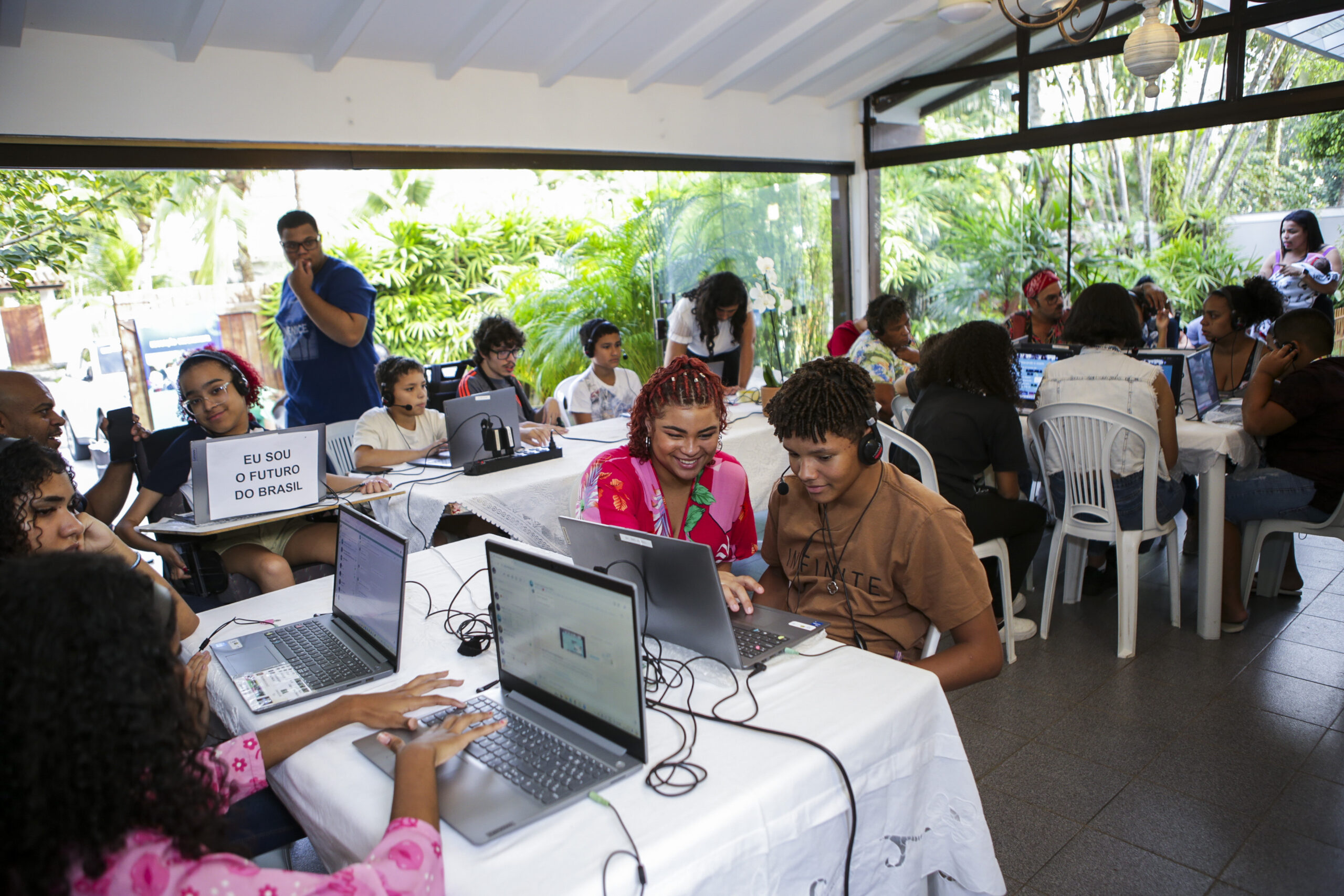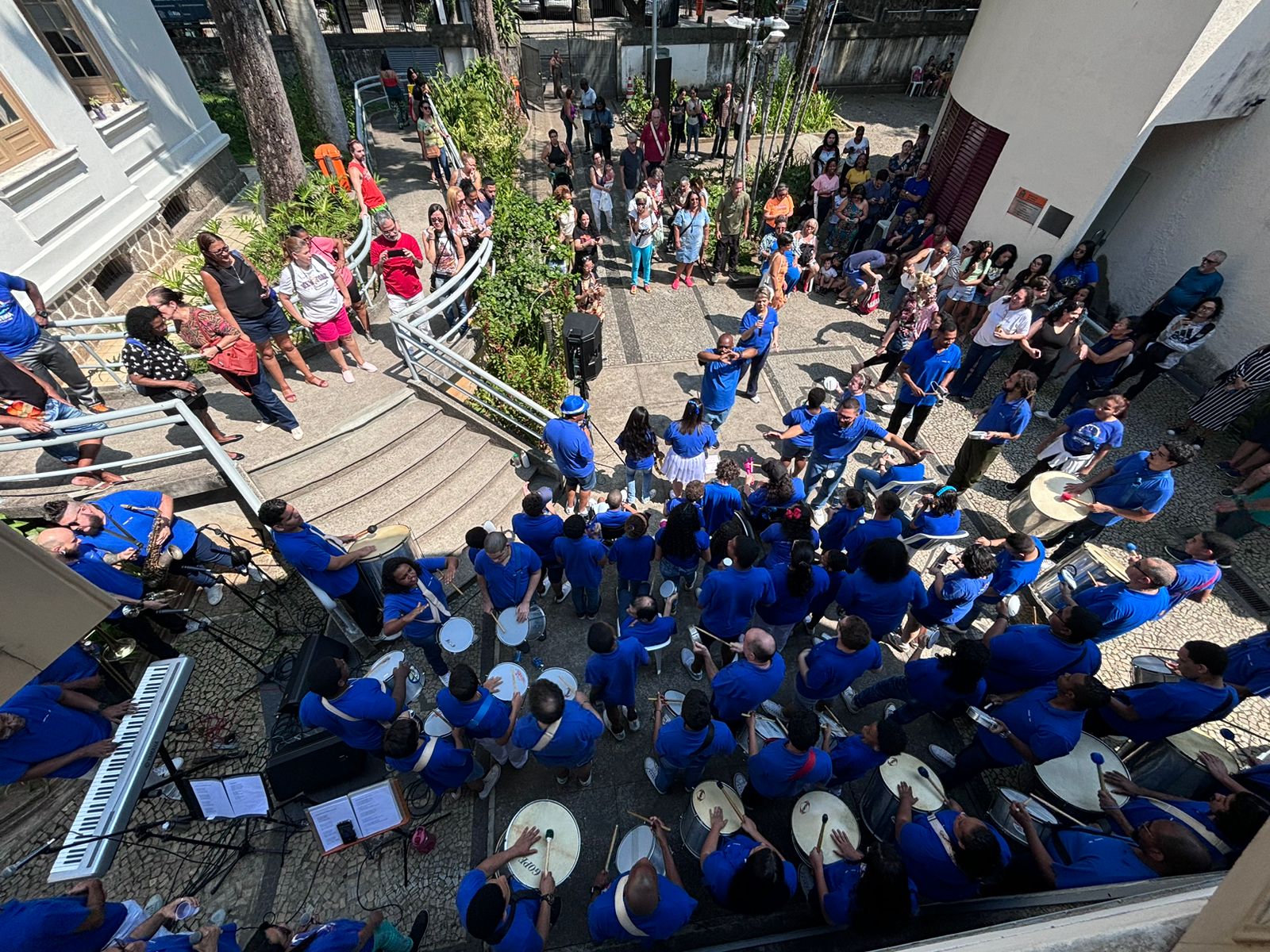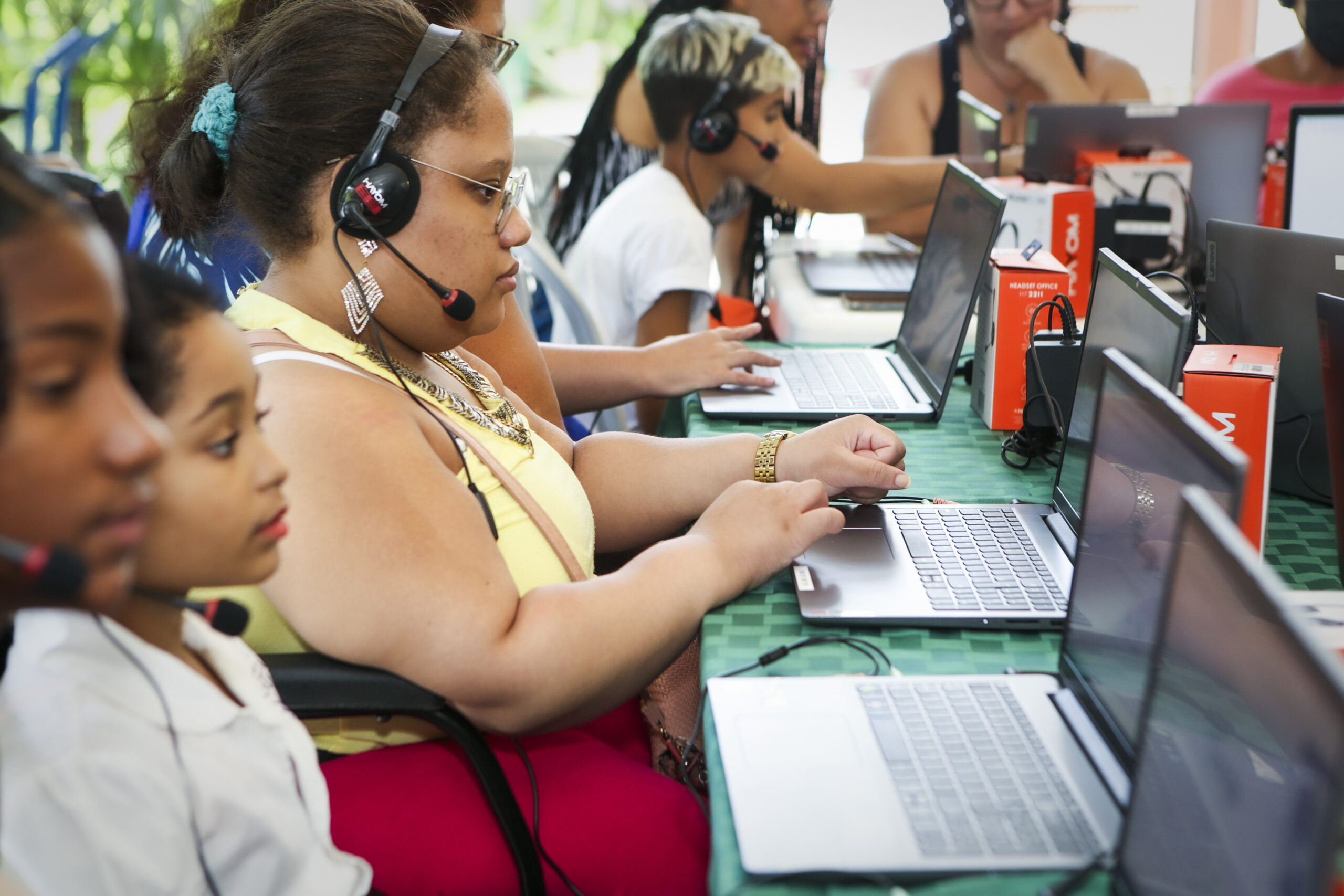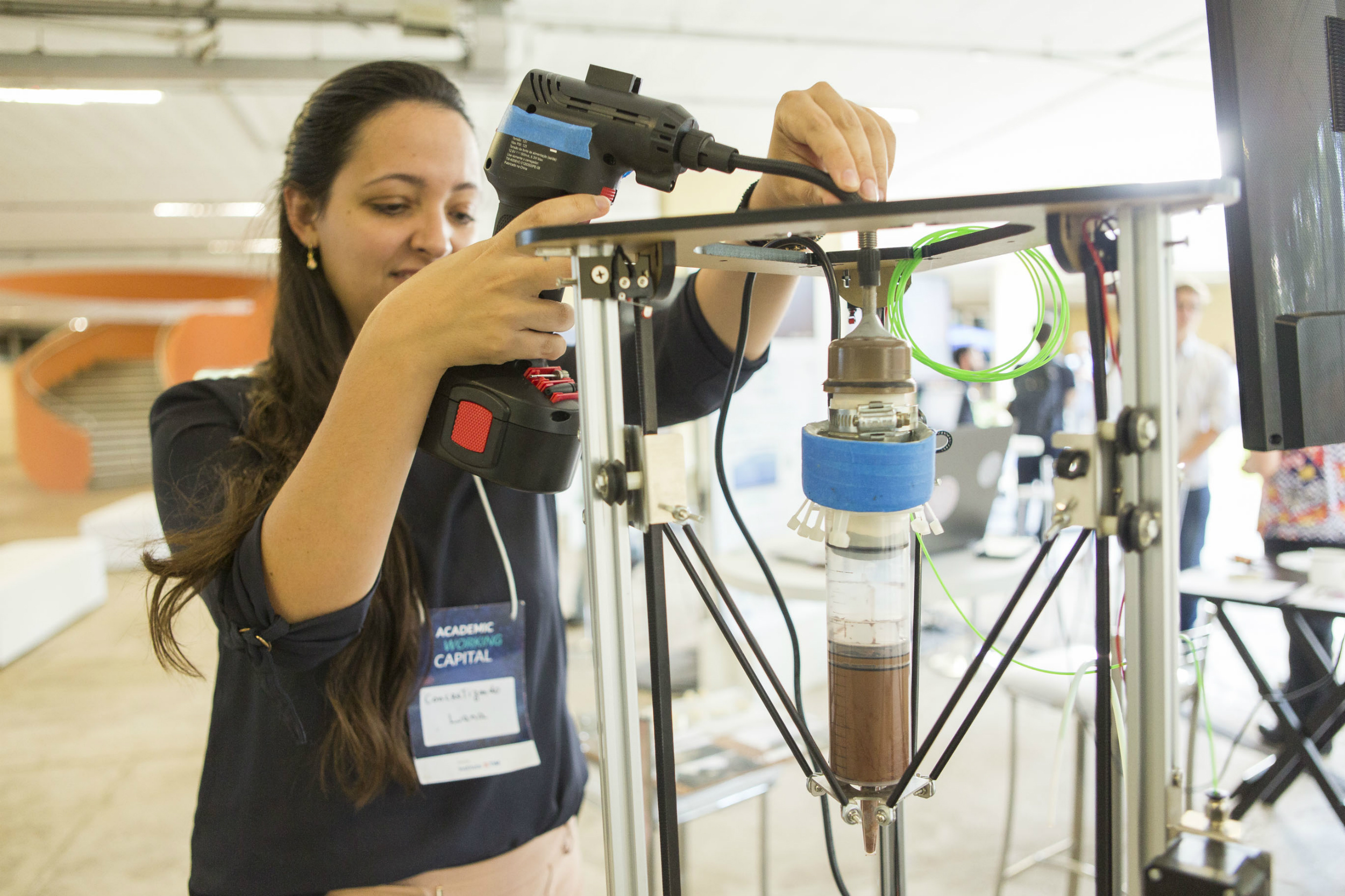
On June 4th and 5th, the 21 groups selected for Academic Working Capital 2022 met for the first workshop of the program that will last until December. At this meeting, the participants got to know the knowledge of trail to be developed at AWC, attended lectures on the universe of business and startups and received the first feedback on their projects from the mentors.
With a total of 52 university students, 69% of which are men and 31% are women, from public and private institutions in the North, Northeast, Southeast and South regions, the selected projects serve several areas, such as education, health, environment, technology, among others. The workshop, held in the B-HUB space of Armando Alvares Penteado Foundation (FAAP), in São Paulo (SP), was the first in-person activity of the program after two years of remote meetings due to the Covid-19 pandemic.
For the president of Instituto TIM, Mario Girasole, one of the great strengths of the AWC is to stimulate entrepreneurship from the transformation of undergraduate thesis into business. “The AWC encourages Brazilian university students to think of technology as an enabler of important changes in the world and helps them to envision new career opportunities along the way”, he comments.
Problem Statement
With an intense agenda of activities, Problem Statement was the first topic to be addressed. Afterwards, all the groups introduced themselves and talked about their projects. “At university, I learned about the Triple Helix Model of Innovation, which unites government, university and business in the creation of new products. When I saw that Instituto TIM has been carrying out the AWC within this concept, I was motivated to turn my idea into reality”, says Jonas Cunha da Silva, a Bioprocess Engineering student at the Federal University of Pará and enrolled with the Revfood project.
Next, AWC content coordinator and professor at FAAP, Leandro Queiroz, spoke about how startups can be important means of creating innovative solutions to society’s challenges. He also reinforced that the creation of a business begins with the statement of the market problem – the theme of this first stage of the program, which ends in July. “What is the purpose of your business? The journey starts today with problematizing and validating the mapped problem,” he explained. The morning ended with the “There is life after AWC” chat, with Thalita Braga and Leandro Rodrigues, participants in the 2019 and 2016 editions of the program.
Ideas that Inspire
The afternoon activities started with an inspiring lecture by the founder of the startup Voe sem Asas and Soul Urbanismo, Augusto Aielo, who told about his trajectory and the challenges he faced. Afterwards, the program’s mentors were introduced and participants were able to identify which mentor matches their project. Each group will be closely monitored by one of four mentors: Elisabete Fernandes, Entrepreneurship and Innovation consultant at Sebrae-SP, Amanda Graciano, entrepreneur and startup Hunter, Fabio Zoppi Barrionuevo, professional in the area of Innovation, Technology and Entrepreneurship, and Sérgio Antezana, electrical engineer and member of startup evaluation committees.
Workshop I also had hands-on. After the lecture with Sérgio Antezana, the groups got together to work on identifying the market problem and the customer archetype. “This activity took the entire team out of their comfort zone and made us reflect on if we were on the right path. Understanding and knowing who we are going to serve was a strength. Before, we only had sketches and we left with the archetype ready to be validated”, says Ana Clara Pereira de Morais, a student of Production Engineering at the Federal University of Ouro Preto and enrolled with the Lebre project.
The route to the Pitch
The second day of the Wokshop started with the AWC Executive Coordinator, Anabelle Custodio, presenting the entire journey of the program until its closing in December of this year. After this first stage of defining the market problem, the university students must validate the solution, define the business model and, in the last phase, the focus is on entering the market and training the pitch, that is, the sales speech of the product or service they created. Then, Leandro Queiroz deepened the issue of the market using as an example the story of the startup Jobpet, founded by Daniel Pereira, which works with the recruitment and training of teams specialized in the pet market. “The archetype is the person who has the problem, and your job is to identify what your client’s latent pain is,” he explained. And to talk about “Problem validation: the basis of a great solution”, AWC brought Jozi Belisiario, founder of Aneesa, an e-commerce specialized in the sale of black dolls. And the morning of the second day of Workshop I ended with an explanation on how to prepare the validation experiment.
After lunch, mentor Fabio Zoppi Barrionuevo presented the different ways to prepare and test the interview, which will be used in this validation stage. The intention was to provide inputs so that, in the sequence, the gathered groups could start the construction of the questionnaire from some guiding questions, such as “what is the problem or pain that your undergraduate thesis solves?”, “who is my archetype?”, “what types of questions can be asked of my archetype?”. “You must be able to identify and understand your customers’ urges. And they must learn how they want to solve the problem and still understand what is in their way,” explained the mentor.
The day ended with another guest speaker, Julie Calderon, entrepreneur at A Sementeria, in the food business. “All the activities were very special and I highlight the lectures with the invited entrepreneurs. Understanding that an entrepreneur’s path is made of risks and possible failures showed me that it’s not a linear journey as I imagined. And that we can make mistakes, but not give up on dreams”, says Herbert Oliveira, a Chemical Engineering student at the University of São Paulo and enrolled with the Inova Praia project.






































































































